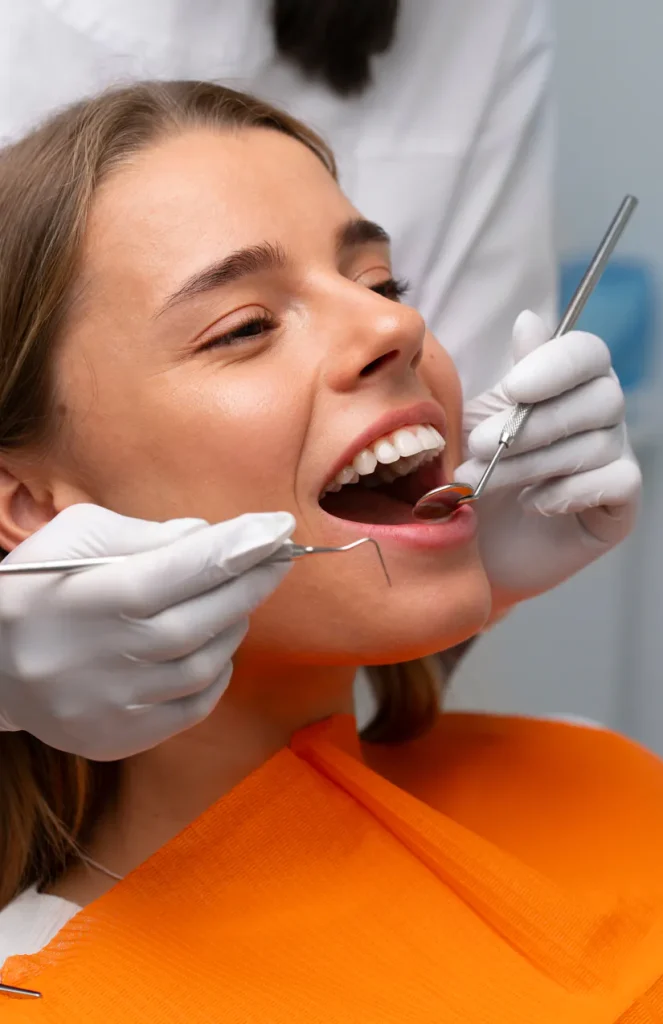Gum disease is a serious oral health condition that’s often caused by poor dental hygiene and bacteria build up in the mouth. If left untreated, it can cause substantial damage to the teeth, gums, and bones.
There are four stages of gum disease:
- Gingivitis
- Early Periodontitis
- Moderate Periodontitis
- Advanced Periodontitis
Successful treatment of gum disease is contingent on how far advanced the disease is, which is why it’s always best to talk to a professional as soon as you think there may be a problem.
In this guide, we’ll be discussing some of the surefire signs of gum disease, as well as prevention tips.
Recognizing the Signs of Gum Disease
Symptoms of gum disease vary, and are often disguised as common, everyday nuances, which is why many people think nothing of them. Common symptoms of gum disease (may) include:
- Swollen, inflamed gums
- Gums that are often tender or bleed easily, especially when brushing
- Painful chewing
- Teeth that are sensitive to touch, as well as hot and cold temperatures
- Teeth that feel loose
- Receding gums
- Deep pockets in between your teeth and gums
- Consistent bad breath
- Changes in tooth alignment when biting down
All of these symptoms could indicate serious dental health issues.
Unfortunately, gum disease is not always easy to recognize, so it’s important that you get regular dental check-ups to monitor your dental health. Your oral health care provider will check for these symptoms, as well as examine your jawbone for any signs of bone deterioration surrounding your teeth. –
Factors That May Put You at an Increased Risk for Gum Disease
There are certain lifestyle factors that may increase your chances of developing gum disease. For example, gum disease is often seen in smokers and drug users, because drugs cause reduced saliva production, which increases the mouth’s susceptibility to oral infections and bacteria growth.
In addition, you may be at an increased risk for gum disease if you have diabetes, HIV/AIDS, are undergoing cancer treatment, or regularly take medications that cause dry mouth. Other risk factors include genetic susceptibility and hormonal changes.
Preventing Gum Disease
The most effective way to prevent gum disease is by maintaining good oral hygiene. This includes:
- Brushing thoroughly twice daily after meals to remove plaque and prevent tartar build up
- Flossing daily
- Rinsing regularly
You may also want to consider using an antibacterial mouth rinse and toothpaste as well. Always get regular dental check-ups and professional teeth cleanings twice a year. And drink plenty of water.
At Specialty Dental Care, we pride ourselves in providing our patients with the best oral health education, and care in the area. Our periodontists specialize in diagnosing and treating gum disease, and can help determine whether you have sensitive gums or it’s something more serious. We can also recommend treatment options to minimize damage to the mouth and jaw bone if you do, in fact, have gum disease. Contact us today with questions or to make an appointment.


